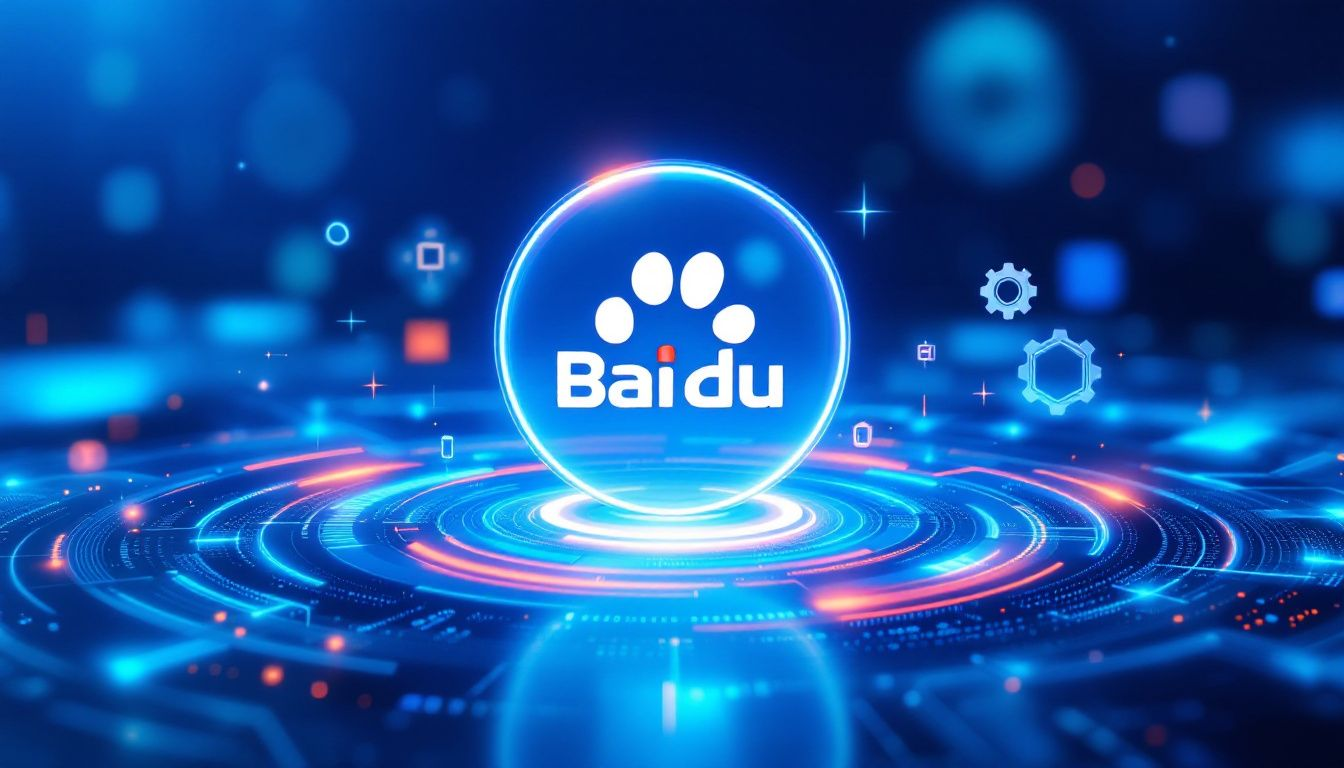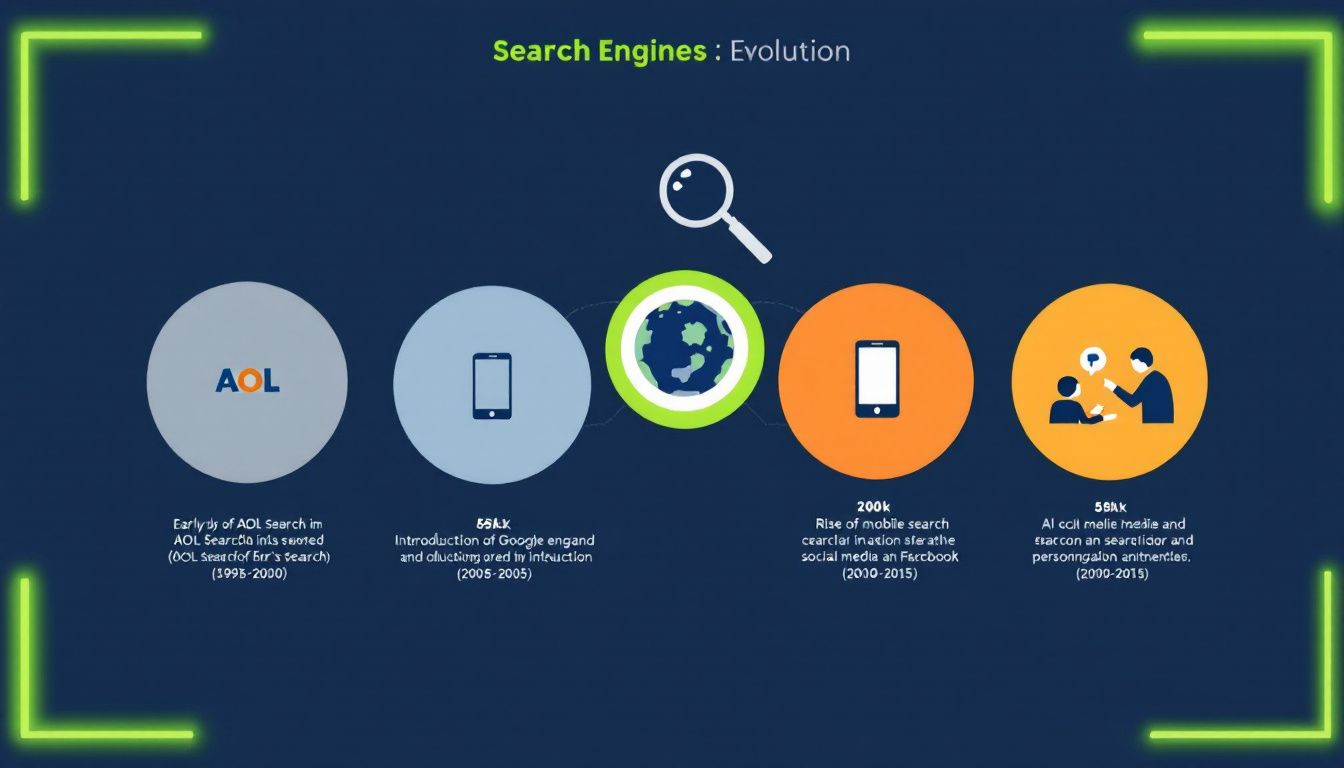Discover the top 10 search engines in 2025. This guide covers the best alternatives to Google and their unique features.
Key Takeaways
- Google remains the top search engine globally, holding over 90% market share, but faces legal challenges and changes to user experience with ads.
- Bing offers unique features like Microsoft Rewards and AI enhancements, making it a strong alternative to Google, despite a smaller market share.
- Privacy-focused search engines like DuckDuckGo and eco-friendly options like Ecosia are gaining popularity as users seek alternatives that prioritize user data protection and environmental impact.
Google: The Dominant Search Engine

With an impressive global market share surpassing 90%, Google is the most popular search engine by a substantial margin. Its dominance extends to different platforms, holding over 79% for desktop searches and an even more remarkable 94% for mobile queries. The crux of Google’s preeminence stems from its highly sophisticated algorithms that persistently improve both the pertinence and accuracy of its search results, positioning it at the pinnacle among engines in the world.
The integration of Gemini, Google’s own artificial intelligence system, into their framework sets them apart as well. By condensing search results and refining user interactions with those results, this AI-powered strategy ensures that users can quickly locate exactly what they seek through a streamlined interface — a key factor in why so many regard Google as synonymous with superior quality within the realm of search outcomes.
Yet challenges loom on the horizon even for giants like Google. Presently embattled in litigation concerning alleged monopolistic practices filed by the US Justice Department. Recent changes to how advertisements are displayed on Google’s Search Engine Results Page (SERP) threaten to alter user experiences detrimentally—a notable shift worth attention. Nevertheless, amidst these turbulent waves, Google steadfastly maintains its status as not only exceedingly prominent but also unrivaled when it comes down to providing precise and germane information via their impeccable search engine services.
Microsoft Bing: The Leading Alternative

Microsoft Bing, as the second most substantial search engine in the space, commands a 3.72% slice of the market share as we look at data from May 2024. Even though it’s considerably smaller when juxtaposed with Google’s dominance, Bing distinguishes itself by offering distinct features that provide added value to its users. Among them is Microsoft Rewards, which entices users to perform searches in exchange for points that can be traded in for a range of rewards.
On top of this incentive system, Bing has also integrated AI-powered enhancements such as Copilot into its platform, enhancing user experience by delivering more sophisticated and pertinent search results. This advancement positions this position. Bing favorably among those who are scouting for alternatives beyond what Google offers.
An area where Bing might fall short is that its search outcomes rely predominantly on its unique index, which may restrict result diversity and autonomy compared to other engines’ offerings. Despite potential limitations inherent in this approach, Microsoft’s presence within the realm of search engines persists robustly. It serves as a viable alternative, particularly among individuals eager to deviate from conventional choices like Google.
Yahoo Search: A Trusted Name
Having cemented itself as a mainstay for numerous online users, Yahoo Search boasts an extensive history. Presently utilizing Microsoft Office. With Bing’s technology, it delivers both reliable search results and a user-friendly interface. Its designation as the default search engine in Firefox browsers within the United States since 2014 has bolstered its status amidst widely-used search engines.
Anticipated to unveil an overhauled user experience at the onset of 2025, Yahoo Search is poised to offer improvements aimed at increasing usability and performance. It continues to be a preferred choice among users who value both a reputable brand and innovative updates.
Baidu: China’s Largest Search Engine

In China, Baidu holds a commanding position as the leading search engine with a significant market share of 54.36% as reported in November 2024. Although it has experienced a decline from its previous market share of 68.52%, Baidu continues to maintain substantial influence within the realm of Chinese search engines.
Baidu’s competitive edge is sharpened by its dedication to local preferences and linguistic diversity, offering features that resonate with users across various Chinese dialects for enhanced relevancy in search results. The integration of proprietary services such as Baidu Maps and Baijiahao Enriches searches, providing an elevated level of detail and convenience for users.
Extending beyond simple searches, Baidu boasts additional offerings like news platforms and map services along with their own encyclopedia-style resource known as Baidu Baike. Despite having modest global market penetration at just 0.96%, these diverse service options solidify its standing within the domestic sphere—a fact highlighted by different usage patterns where desktop utilization sits at only 30.64%, while mobile use soars to an impressive 67.99%.
Yandex: Russia’s Premier Search Engine
Yandex, the Russian search engine titan, dominates its home turf by eclipsing Google in terms of market share within Russia. The company employs cutting-edge artificial intelligence to boost the performance of its search engine, ensuring users are provided with results that are both pertinent and precise. Holding a global market share of 1.65%, Yandex is positioned as Russia’s 8th most frequented website. Its Site Quality Index (SQI) serves as an indicator for ranking websites based on their utility, aiding users in locating content of superior quality with greater ease.
In light of seeking avenues to recoup investments for shareholders and pivot towards international expansion across other sectors, Yandex contemplates divesting its assets within Russia. Even amid potential shifts in strategy or ownership structure, Yandex continues to be an influential entity within the realm of Russian search engines.
DuckDuckGo: Privacy-Focused Search

DuckDuckGo has established itself as the preferred search engine for users who prioritize privacy. It distinguishes itself from many other search engines by not gathering user information, making it an attractive option for those cautious of data monitoring. As evidence of its increasing acceptance, DuckDuckGo handled more than 96 million daily search queries as reported in November 2022.
To ensure the security of data, the search engine employs HTTPS encryption to safeguard users’ details during their online interactions. DuckDuckGo enhances its functionality with ‘bangs,’ a distinctive feature that permits direct searches on specific websites right from the search bar. It serves non-personalized advertisements that respect user anonymity while still enabling revenue generation.
Amid rising apprehensions about digital privacy among internet denizens, DuckDuckGo’s assurance against tracking sets it apart prominently. This dedication to privacy protection alongside powerful searching tools positions DuckDuckGo among the best search engines for individuals concerned about protecting their digital footprint.
Ask.com: The Answer Engine
Founded in 1996 and originally dubbed Ask Jeeves, Ask.com has transformed into a distinctive search engine that prioritizes supplying answers to users’ inquiries. This platform diverges from conventional search engines which depend predominantly on keyword searches by adopting a specialized question-and-answer format designed to address precise questions more adeptly.
In the face of intense competition, Ask.com ceased its traditional search engine operations in 2010, shifting focus to exclusive functionalities such as previewing webpages before engaging with their content. While it shares similarities with Yahoo’s layout—showcasing news beneath the search field—it functions autonomously without utilizing Microsoft Bing’s power for its operation.
Naver: South Korea’s Favorite Search Engine
Established in 1999, Naver has become the most popular search engine across South Korea. It is tailored to handle the Korean language effectively, delivering highly relevant search results for those who use it. To cater to a variety of interests, Naver integrates no fewer than 19 distinct verticals within its search results.
In an effort to enhance how users interact with their searches, content from proprietary platforms like Naver Blog and Naver Café frequently populates the Search Engine Results Page (SERP). The SOLID project was initiated by Naver in 2021 as part of an algorithm enhancement designed to augment both relevance and reliability within these results.
High engagement levels are reflected by user sessions on the platform averaging over 27 minutes each time they visit. In place of providing trending searches which had been removed earlier, real-time interactions are encouraged through services such as Naver TALK. Thanks partly due to offerings like news items and refined search suggestions. This leading online property maintains its stronghold among audiences in South Korea.
Ecosia: The Eco-Friendly Search Engine
Ecosia is an environmentally conscious search engine that dedicates its earnings to tree planting efforts. It finances the planting of one tree for every 45 searches conducted on its platform. The reliability and relevance of Ecosia’s search results are bolstered by their partnership with Microsoft Bing, while it monetizes through advertisements in those very search outcomes, channeling proceeds towards green initiatives.
With a footprint covering roughly 0.10% of the global market share, this percentage spikes to about 0.87% within Germany itself. Generating an average monthly revenue of $4 million, Ecosia continuously contributes positively to environmental sustainability.
For individuals keen on aligning their online activities with ecological benefits, choosing Ecosia as their go-to search engine translates web queries into tangible support for planetary health.
AOL Search: A Legacy Web Portal

Despite its diminished visibility in the current digital age, AOL Search continues to cater to a specific segment of users with its distinct design and search capabilities. Its search results interface is populated with advertisements and provides a variety of searches including web, image, multimedia, shopping, news, as well as local queries. Alongside these features stands the prominently placed search bar which flanks updates on national and regional news events. To weather reports.
With around 0.09% market share in the realm of search engines, AOL Search exemplifies a specialized position within this sector. Modest this percentage may be, it still garners roughly 339 million visits each month—a testament to its consistent user community.
On January 20th, 2005, AOL re-engineered their platform for enhanced searching mechanisms, signifying an important development towards modernizing how users interact with their service offerings.For enthusiasts drawn to classic web portals offering distinctive browsing experiences, AOL’s Search engine offers just that-meriting recognition amidst various alternatives available today.
Other Noteworthy Search Engines
There are various search engines that merit attention due to their distinctive attributes. Among these, Brave Search stands out with its strong commitment to privacy, as it effectively blocks both advertisements and tracking mechanisms. This ensures a browsing experience free from the worry of data harvesting.
Yep presents itself as an intriguing choice by virtue of being an AI-driven non-profit search engine which redistributes 90% of its advertising earnings back to those who generate content. This unconventional approach to how it operates makes it more interesting. Yep, a compelling alternative worthy of consideration among other search engines.
Conclusion
The capability of a search engine to present precise and relevant search results plays a critical role in ensuring user satisfaction. As concerns over privacy grow, numerous search engines have taken the initiative to implement policies that refrain from tracking users’ personal information. Tailoring content regionally can significantly boost relevance. This is exemplified by Baidu and Naver’s approach to meeting their local audiences’ preferences.
Google may dominate the market, but there remains ample space for other search engines to thrive – an aspect particularly beneficial for marketers seeking expansion beyond their current audience scope. The advent of AI-driven alternatives has breathed new life into the realm of non-Google options available for both consumers and marketing professionals.
Leveraging multiple platforms within one’s repertoire can notably augment strategies focused on Search Engine Optimization (SEO). This diversification not only enriches tactics, but also improves visibility potential by increasing opportunities to rank at the top tier of various first-page listings across different search engines.
Summary
In essence, venturing into the realm of various search engines can yield a multitude of advantages, ranging from improved privacy measures to backing eco-friendly projects. Expanding your repertoire of search engine choices allows you to discover an option that aligns closely with your personal preferences and ethical priorities. Consider giving a new search engine a shot today and witness the potential impact it can have on your online experience.
Frequently Asked Questions
What is the most popular search engine in 2025?
Google is still the go-to search engine in 2025, dominating over 90% of the market.
If you’re looking for reliable search results, it’s the best choice!
Which search engine is best for privacy?
DuckDuckGo is the best search engine for privacy since it doesn’t collect any user data, ensuring your searches stay private.
How does Ecosia contribute to the environment?
Ecosia contributes to the environment by using its profits to plant trees, funding the planting of one tree for roughly every 45 searches.
So every time you search, you’re helping to grow more trees!
What makes Naver unique in South Korea?
In South Korea, Naver distinguishes itself by employing a search algorithm that is specifically designed for the Korean language and integrates content from its array of platforms. This approach significantly enhances the efficacy for local users by facilitating their access to pertinent information with ease.
Are there any search engines that reward users for searching?
Absolutely! Microsoft. Bing rewards users with points through their Microsoft Rewards program for every search you make.
It’s a great way to earn while you search!

